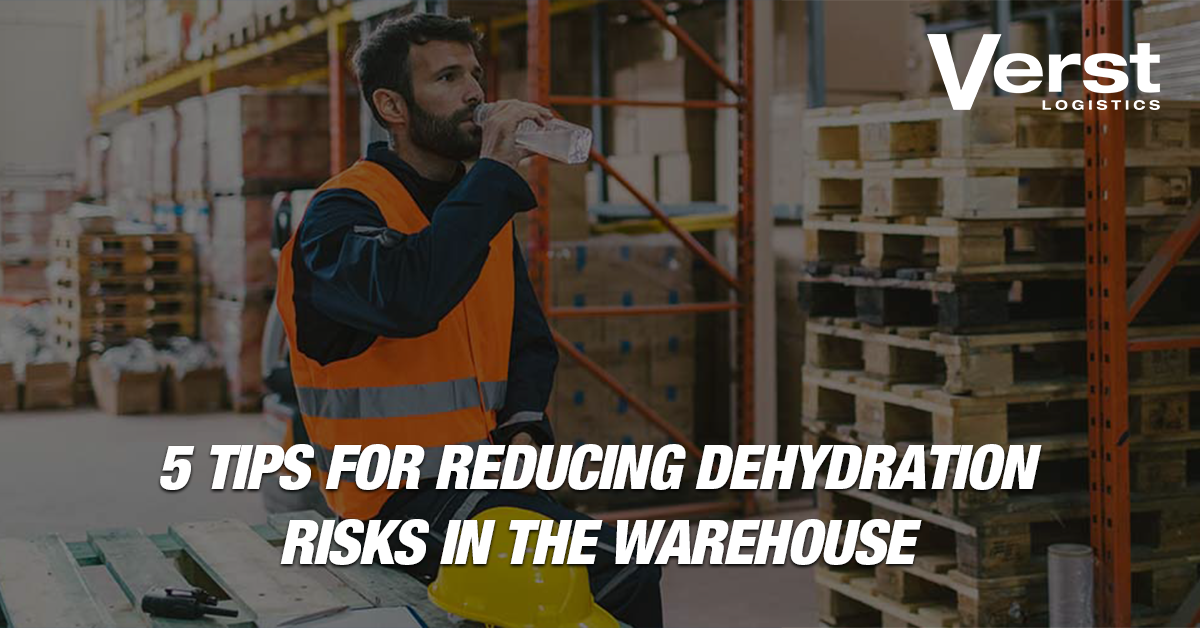
July 12, 2018
Heat Stress
What is heat stress, why do we care about it, and what can it do to your employees?
Heat stress is a situation where too much heat is absorbed by a person and causes stress, illness or even death. Heat stress is manifested by elevated body temperature, hot, dry skin, lack of sweating and neurological symptoms such as paralysis, headache vertigo and unconsciousness. It can also cause heat cramps, heat exhaustion and heat stroke which may lead to death.
Heat Cramps
Painful, brief muscle cramps that occur during or after exercise or work in a hot environment. Muscles may spasm or jerk involuntarily. Cramping may also be delayed and occur a few hours later, but it also affects those who sweat a lot during strenuous activity. The strenuous activity depletes salt and moisture levels that cause heat cramps.
Symptoms:
First-Aid:
Heat Exhaustion
A condition whose symptoms may include heavy sweating and a rapid pulse, a result of your body overheating. It's one of three heat-related syndromes, with heat cramps being the mildest and heatstroke being the most severe. Fortunately, heat exhaustion is preventable if you follow these tips. Heat exhaustion is the body’s response to an excessive loss of water and salt through sweating.
Symptoms:
First-Aid:
Heat Stroke
A condition caused by your body overheating, usually as a result of prolonged exposure to or physical exertion in high temperatures. The body becomes unable to control its temperature and can cause death or disability.
Symptoms:
First-Aid:
What can you do to prevent heat stress?
In some professions, it is difficult or impossible to prevent employees from getting hot at work. Here are some things you can do to prevent heat exhaustion and other heat-related illnesses to your employees:
Wear loosefitting, lightweight clothing. Wearing excess clothing or clothing that fits tightly won't allow your body to cool properly.
Protect against sunburn. Sunburn affects your body's ability to cool itself, so protect yourself outdoors with a wide-brimmed hat and sunglasses and use a broad-spectrum sunscreen with an SPF of at least 15. Apply sunscreen generously, and reapply every two hours — or more often if you're swimming or sweating.
Drink plenty of fluids. Staying hydrated will help your body sweat and maintain a normal body temperature.
Take extra precautions with certain medications. Be on the lookout for heat-related problems if you take medications that can affect your body's ability to stay hydrated and dissipate heat.
Never leave anyone in a parked car. This is a common cause of heat-related deaths in children. When parked in the sun, the temperature in your car can rise 20 degrees Fahrenheit (more than 6.7 C) in 10 minutes.It's not safe to leave a person in a parked car in warm or hot weather, even if the windows are cracked or the car is in shade. When your car is parked, keep it locked to prevent a child from getting inside.
Take it easy during the hottest parts of the day. If you can't avoid strenuous activity in hot weather, drink fluids and rest frequently in a cool spot. Try to schedule exercise or physical labor for cooler parts of the day, such as early morning or evening.
Get acclimated. Limit time spent working or exercising in heat until you're conditioned to it. People who are not used to hot weather are especially susceptible to heat-related illness. It can take several weeks for your body to adjust to hot weather.
Be cautious if you're at increased risk. If you take medications or have a condition that increases your risk of heat-related problems, such as a history of previous heat illness, avoid the heat and act quickly if you notice symptoms of overheating. If you participate in a strenuous sporting event or activity in hot weather, make sure there are medical services available in case of a heat emergency.
Tags:

Hot, Tired, and Thirsty: How Dehydration Feels Start your hydration early in the morning… When dehydration occurs, we experience a range of symptoms from dry mouth, headaches, dizziness, and fatigue...

Imagine if there were a magic elixir that could keep your warehouse personnel safer and cooler – while also improving their productivity, general mood and mental acuity. Now imagine this: There is,...
Resources
Connect